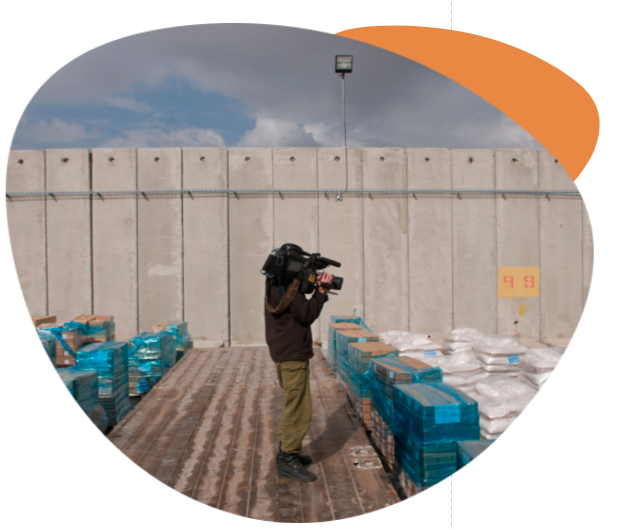Worthy Victims
A Critique of Neoliberalism in Humanitarian Communications
DOI:
https://doi.org/10.21153/thl2020volno0art1016Keywords:
Neoliberalism, humanitarian communications, ethics of care, consumerismAbstract
This article discusses neoliberalism in the context of humanitarian communication with a particular emphasis placed towards the self. The neoliberal self combines features of entrepreneurship and consumerism
with the contemporary discourse of ‘doing our part’.
To combat such criticism, an argument has been advanced that we must be more open to the experiences, histories, cultures, and identities of individuals that are different from ourselves. This does not mean that we should accept injustice in the name of culture. This also does not mean that we should narrow our understanding of difference whereby problems of the other ‘just happen to be’. It does mean, however, that dialogue is a crucial component of understanding needs and realising that not only does justice look different in other communities, but within our highly globalised and capitalist societies no problem is solely self-determined.
Self-reflexive knowledge that discloses the sources and limits of power is therefore a key factor in moving away from a system that requires one to be identified as poor. Crucially, what this article hopes to advocate is a form of communication that is centred on a normative ethics of care.
Downloads
References
Aristotle, Ross, W. D., & Brown, L. (2009). The Nicomachean ethics. Oxford: Oxford University Press.
Baaz, M. E. (2005). Identity and Development Aid. In The paternalism of partnership: a postcolonial reading of identity in development aid (pp. 1-31). London: Zed Books.
Barnett, M. (2008). Humanitarianism as a Scholarly Vocation. In M. Barnett, & T. G. Weiss, Humanitarianism in Question: Politics, Power, Ethics (pp. 235-263). Cornell University Press.
Barnett, M., & Weiss, T. (2008). Humanitarianism: A brief History of the Present. In M. Barnett, & T. Weiss, Humanitarianism in Crisis (pp. 1-49). USA: Cornell University Press.
Bourdieu, P. (Translated by Peter Collier; 2020). Habitus and Field: General Sociology, Volume 2 (1982-1983). Wiley.
Brough, M. M. (2012). Fair Vanity: The Visual Culture of Humanitarianism in the Age of Commodity Activism. In R. Mukherjee, & S. Banet-Weiser, Commodity Activism: Cultural Resistance in Neoliberal Times (pp. 174-194). New York: NYU Press.
Cameron, J., & Haanstra, A. (2008). Development made Sexy: how it happened and what it means. Third World Quarterly, 1475-1489.
Campbell, D. (2007). Geopolitics and visuality: Sighting the Darfur conflict. Political Geography, 357-382.
Chouliaraki, L. (2012). The ironic spectator: solidarity in the age of post-humanitarianism. Cambridge: Polity Press.
Chouliraki, L. (2010). Post-Humanitarianism: Humanitarian Communications beyond a Politics of Pity. International Journal of Cultural Studies, 107-126.
Dauphine, E. (2007). The Politics of the Body in Pain: Reading the Ethics of Imagery. Security Dialogue, 139-155.
Dirlik, A. (1994). The Postcolonial Aura: Third World Criticism in the Age of Global Capitalism. Critical Inquiry, 328-356.
Dogra, N. (2011). The Mixed Metaphor of ‘Third World Woman’: gendered representations by international development NGOs. Third World Quarterly, 333-348.
Fahmy, S. (2004). Picturing Afghan Women. Sage Publications, 91-112.
Fanon, F. (1993). On National Culture. In P. Williams, & L. Chrisman, Colonial Discourse and Post Colonial Theory: A Reader (pp. 36-52). New York: Routledge.
Foucault, M. (1984). The Foucault Reader. ed P Rainbow, New York: Pantheon.
Fujiwara, L. H. (2005). Immigrant Rights Are Human Rights: The Reframing of Immigrant Entitlement and Welfare. Social Problems.
Hall, S. (1997). The Spectacle of the Other. In Representation: Cultural Representations and Signifying Practices (pp. 223-279). London: Sage in association with The Open University.
Hausman, D., McPherson, M., & Satz, D. (2017). Economic Analysis, Moral Philosophy and Public Policy. New York: Cambridge University Press.
Held, V. (2006). The Ethics of Care: Personal, Political & Global . Oxford: Oxford University Press.
Hopgood, S. (2008). Saying No to Wal-Mart? Money and Morality. In M. Barnett, & T. Weiss, Humanitarianism in Question (pp. 98-124). USA: Cornell University Press.
Hunt, T. P. (1993). Discourse, Ideology, Discourse, Ideology, Discourse, Ideology... The British Journal of Sociology, 473-499.
Kapoor, I. (2005). Participatory Development, Complicity and Desire. Third World Quarterly, 1203-1220.
Koffman, O., Orgad, S., & Gill, R. (2015). Girl power and ‘selfie humanitarianism’. Continuum, 157-168.
Mason, C. L. (2011). Foreign Aid as Gift: The Canadian Broadcasting Corporation’s Response to the Haitian Earthquake. Critical Studies in Media Communication, 94-112.
Mohanty, C. (1984). Under Western Eyes: Feminist Scholarship and Colonial Discourses. The Discourse of Humanism, 333-358.
Mohanty, C. (1991). Third World Women and The Politics of Feminism: Introduction. Indiana: Indiana University Press.
Nash, K. (2018). Virtual Reality Witness: Exploring the Ethics of Mediated Presence. Studies in Documentary Film, 119-131.
Nodding, N. (1986). Caring: A Feminine Approach to Ethics and Moral Education. Berkeley: University of California Press.
Ong, J. C. (2019). Toward an ordinary ethics of mediated humanitarianism: An agenda for ethnography. International Journal of Cultural Studies , 481-498.
Orgad, S. (2012). Media Representation and the Global Imagination. Cambridge: Polity.
Orgad, S. (2017). Caring enterprise in crisis? Challenges and Opportunities of Humanitarian NGO Communications. In I. B. Seu, & S. Orgad, Caring in crisis? (pp. 83-109). London: Palgrave Macmillan.
Plan International. (2020, April Last Accessed: 02). Plan International UK. Retrieved from https://plan-uk.org/?utm_medium=PPC&utm_source=conversion&utm_campaign=sponsorship_FY20&utm_term=PureBrand&utm_content=WQRG20M03Z&gclid=EAIaIQobChMIo4_1tbvb6AIVwrTtCh1lMAf-EAAYASAAEgLnDPD_BwE
Redfield, P. (2008). Sacrifice, Triage and Global Humanitarianism. In M. Barnett, & T. G. Weiss, Humanitarianism in Question: Politics, Power, Ethics (pp. 196-214). Cornell University.
Sen, A. (2000). Development as Freedom. New York: Anchor Books.
Shome, R., & Hegde, R. S. (2002). Postcolonial Approaches to Communication: Charting the Terrain, Engaging the Intersections. Communication Theory, 249–270.
Spivak, G. (1988). Marxism and the Interpretation of Culture. In Can the Subaltern Speak (pp. 271-313). Macmillan Education.
Tester, K. (2010). Out of Africa. Humanitarianism and Modern Culture, 1-34.
United Nations Foundations. (2020, April 2017, Last Accessed: 03). Retrieved from Nothing But Nets: https://www.youtube.com/watch?v=tRA02fzlIgQ
WaterAid. (2020, April Last accessed: 02). Will you help WaterAid change the picture? Retrieved from Water Aid: https://www.wateraid.org/uk/change-the-picture







